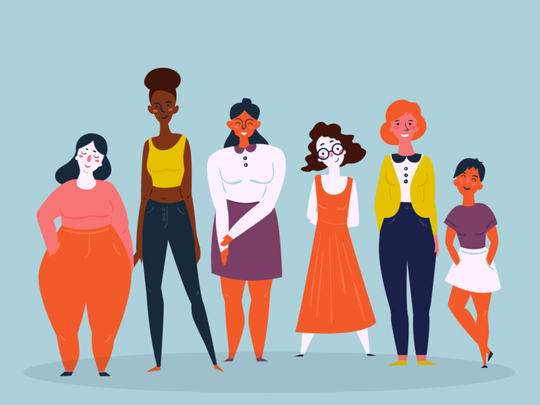
The trailer of a new Bollywood movie about four women — drinking like a fish, smoking like a chimney and rolling around with scantily clad men in the background took me back to the 1980s. There was this advertisement that used to appear on the state-owned Indian television channel Doordarshan — a boy, about ten years old, was getting ready to go to school.
The setting is a village, with a thatched roof house. A girl, slightly younger than him, looks on at him with envy. The mother brings roti and dal (unleavened flat bread and lentil curry) to him. The boy eats and leaves for school. The girl is then given roti with a slice of onion.
She stays back to help her mother with household chores. The advertisement ends with an ominous voice advising viewers that girls also have the right to nutritious food and education, just as the boys.
When I was 10 years old, this was the staple evening entertainment on Doordarshan.
After watching the movie promo, I realised that gender equality has finally arrived, but 30 years late! When I was growing up, girls were supposed to be seen and not heard.
I have witnessed and myself fought many a battle across the dining table to be taken as seriously as men. And it still continues.
When guests come over to my home, they talk to my husband about everything from the rupee exchange rate to global warming. When they finally run out of topics, they turn to me with the unbridled enthusiasm of one who is going to have his tooth pulled out by the dentist and ask: ”So, what did you cook for lunch today?”
So, needless to say, it fills me with pride when I see women storming the male bastions and being everywhere from cockpits to boardrooms. But there is this thing as too much of a good thing.
Now feminism is not just about equal opportunities for education and employment or about equal pay for equal work. There is this new version of gender equality being played out by visual media wherein women are encouraged to be alcoholic, debauched and shameless.
What is worse is that some young women viewers are supposedly finding this ‘liberating’. Whenever anyone questions this nauseating display, the quick reply would be if men can, why can’t we?
The answer is — yes, you can but you shouldn’t and neither should men.
If only they lived in 1980s, they would know that this trend ends in a bad way. Those days, movies celebrated the macho man image — drinking, smoking and womanising. This bred a generation of self-centred men who had an exaggerated notion of their importance and a total disregard for the rest of the world, especially women.
A generation of men who had no respect for the society or the importance of an individual’s role in maintaining decorum in a society. It was always I, me, myself.
Now these very qualities are being shown as being desirable for a woman. We need to understand that feminism does not mean we beat men at their idiosyncrasies. We need to understand that freedom devoid of decency and moral values is worse than oppression, because it leads to the moral decline of a society.
— The reader is a resident of Ajman








